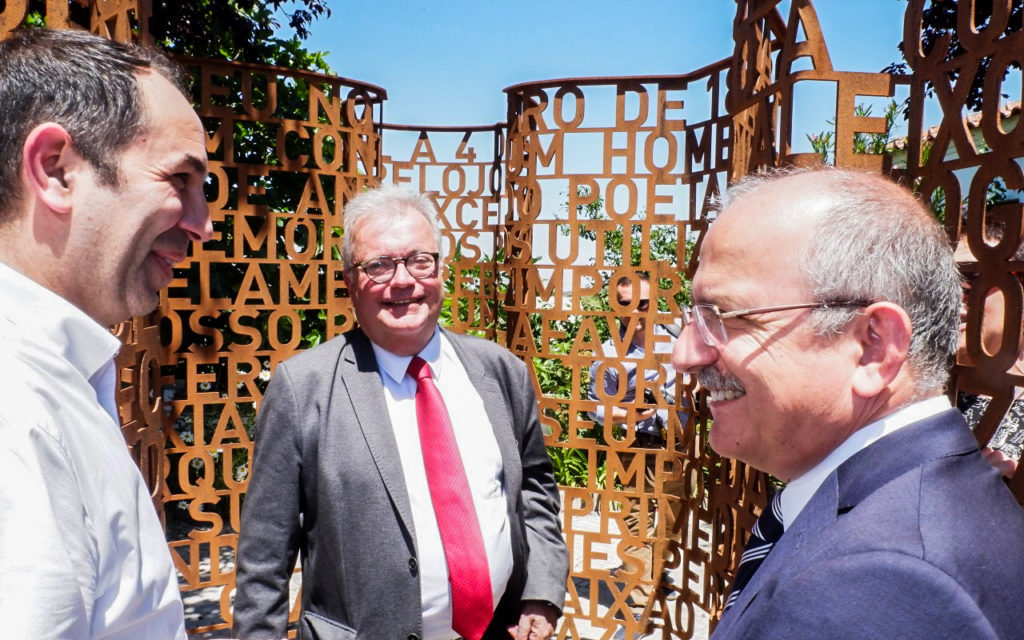 The main objective was to recognize the vast cultural legacy left by José Rosa Madeira to Loulé and the country. But the inauguration ceremony of a statue in honor of this Loulé native, which took place this Saturday in Ameixial, his birthplace, was also a moment of reunion for his descendants, including the minister of Culture Luís Castro Mendes.
The main objective was to recognize the vast cultural legacy left by José Rosa Madeira to Loulé and the country. But the inauguration ceremony of a statue in honor of this Loulé native, which took place this Saturday in Ameixial, his birthplace, was also a moment of reunion for his descendants, including the minister of Culture Luís Castro Mendes.
The member of Government was in the village in the interior of the municipality of Loulé to preside at the ceremony and was received with due honors by the official entities, but also with hugs and kisses from cousins and cousins. And there was even the right to a family photo.
It was under these two conditions – minister and grandson – that Luís Castro Mendes was at Ameixial, accompanied by his children, on 16 June. And if, as a member of the Government, the words he left behind could have been uttered by any of his fellow executives, those he left as a descendant of José Rosa Madeira came from his heart.
Luís Castro Mendes no longer knew his grandfather, who was born in 1890 and died in 1941. In fact, he illustrated, few people could have boasted, with propriety, of knowing the honored person. This is because the watchmaker from Loulé was "a very private man" and was a mystery even to his own relatives.
It was with astonishment, illustrated by the current Minister of Culture, that her grandmother was visited by members of the Masonic lodge to which her husband belonged, after his death, as she had no knowledge that José Rosa Madeira was a Freemason.
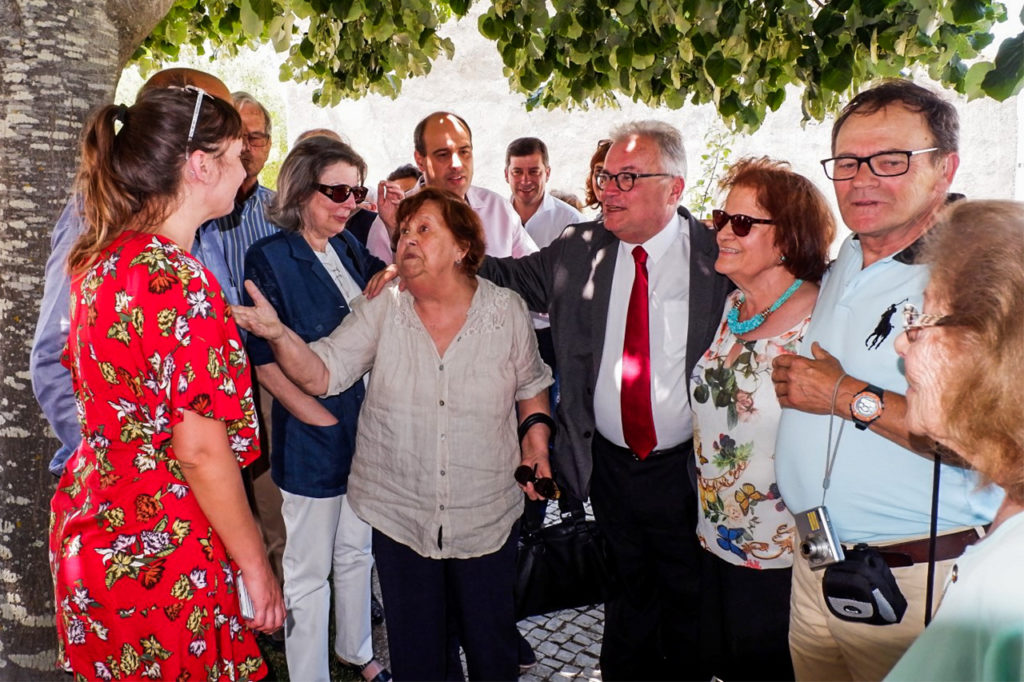
This did not stop Luís Castro Mendes from trying to get to know his grandfather better, whose respectability survived his disappearance. And it was thanks to the fact that he himself was “a library mouse” that he got close to his ancestor.
“My grandfather had books on everything in his library. He was a watchmaker, but in addition to being a man of ingenuity, he was also a man of knowledge», said the Minister of Culture during the tribute. Sul Informação followed.
This passion for learning and getting to know him made him “aware of everything”. «I ran these fields and spoke to all the people, from whom I asked the old stones that they had found,” he recalled.
It was in this way that José Rosa Madeira gathered a vast collection of archaeological finds, including several stelae with Southwest Writing, dating back around 2500 years. This is the first form of writing known in the Iberian Peninsula, which is being studied under the Estela project and that "it is still to be deciphered today".
The findings were then shared with Manuel Heleno – «my mother said he would go there to the house and take everything» – and Leite de Vasconcelos, two major names in archeology, in Portugal.
Many of these pieces were eventually donated by Rosa Madeira to museums, including the National Archeology Museum, founded by Leite de Vasconcelos and of which Manuel Heleno was director.
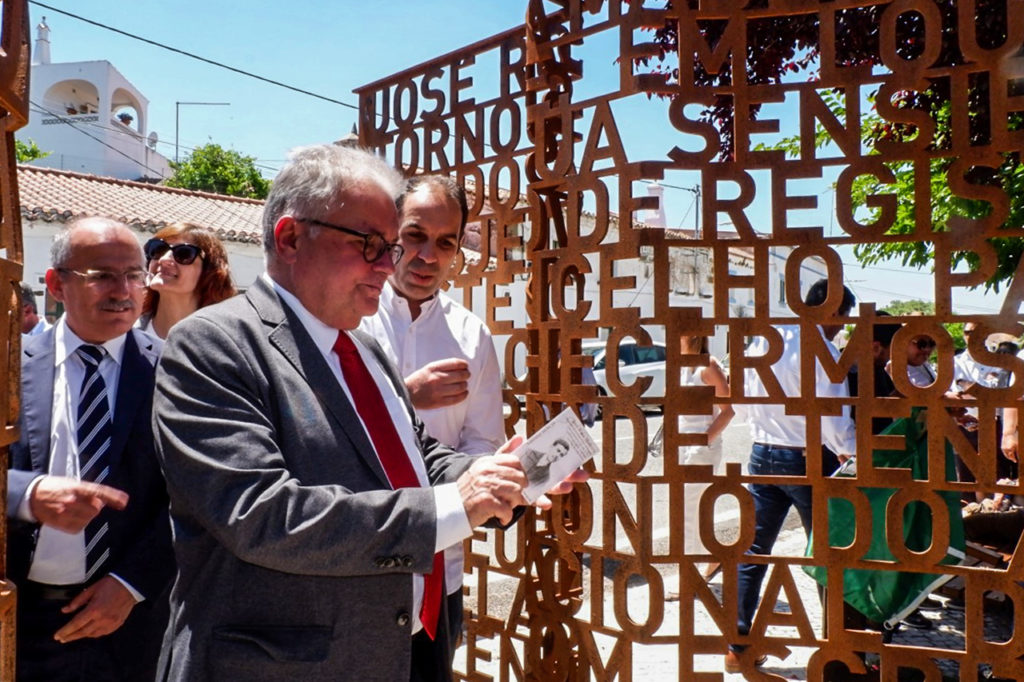
José Rosa Madeira's interests were not limited to inanimate objects, which the territory had guarded for centuries. He also had more current interests, such as photography and literary creation from the time he lived.
And it was this facet that led him to collect and record the poems said by António Aleixo, in a work done together with Joaquim Magalhães, then rector of the Liceu de Faro. «I still have at home several poems by António Aleixo, handwritten by our grandfather», he said.
Next to the minister was the mayor of Loulé Vítor Aleixo, who also ended up entering this story through his grandfather, precisely the popular poet from the Algarve whose work José Rosa Madeira helped immortalize on paper.
The mayor from Loulé made a point of stressing that the honoree «understood the potential of António Aleixo before the others» and that it is to him that «a lot of the collection of stelae we have today is owed», part of which are part of the exhibition “Loulé. Territories, Memories, Identities” on display at the National Archeology Museum, in Lisbon, and which results from a partnership between this entity and the Municipal Museum of Loulé.
The archaeological finds that were collected about a hundred years ago by José Rosa Madeira are, nowadays, a symbol of Loulé, in whose territory the people who used the Southwestern Writing lived for more than two millennia.
They are also one of the inspirations of the Ameixial Hiking Festival, held for six years in this village in the interior of Loulé.
The sculptural project by artist Miguel Cheta, inaugurated on Saturday, joins other artistic interventions related to Writing in the Southwest that have been carried out in public spaces, within the scope of this festival.
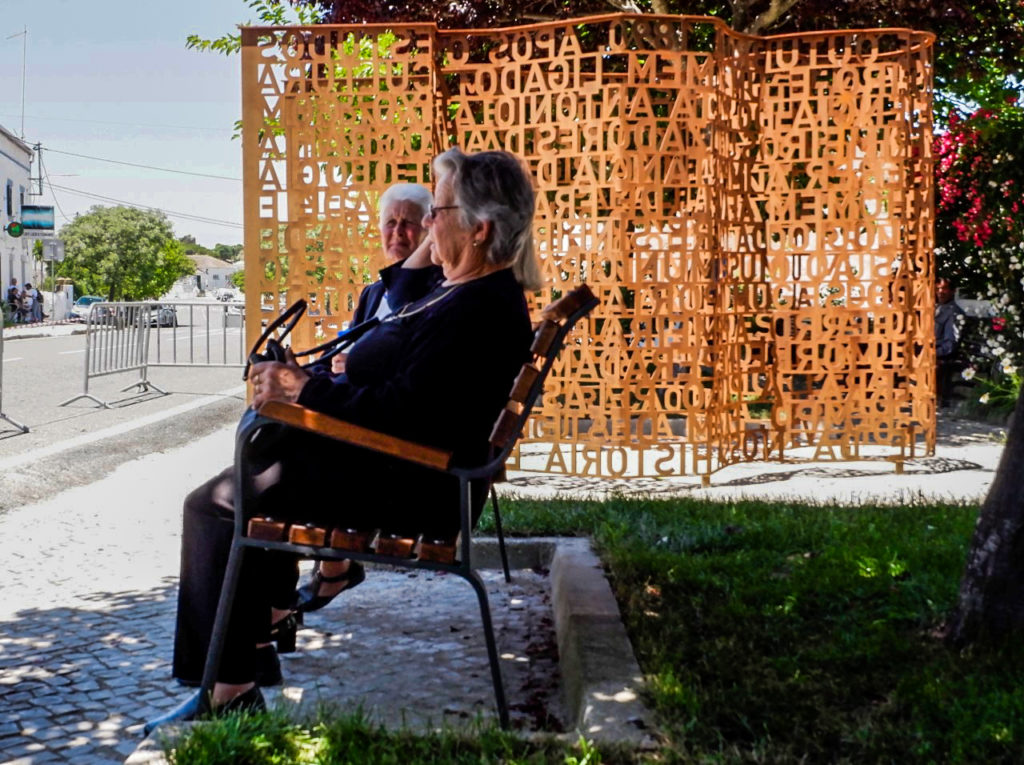
This piece goes even further, due to its nature. The sculpture, in Corten steel, reveals the multiple interests of José Rosa Madeira, «through a biographical text that also serves as an outline of the profile of the person being honored as a more conceptual and less formal idea of bust», according to Câmara de Loulé.
The text in the sculpture, by Pedro Barros, archaeologist and specialist in Southwest Writing, «is presented in an engaging and delicate way, allowing the viewer to enjoy the landscape and observe its constant metamorphosis in its direct relationship with time. ».
This is, for the Câmara de Loulé, a «deserved tribute to José Rosa Madeira in his native land», which, in this way, recognizes «his love for his land, his passion for its mountainous origins and the attraction for the passage of time , making him a unique man to whom the country owes part of our history and identity».
On the part of the family, in the words of representative Luís Castro Mendes, “it was good to rediscover the memory of our grandfather. Thank you for what you did!».
Photos: Hugo Rodrigues|Sul Informação
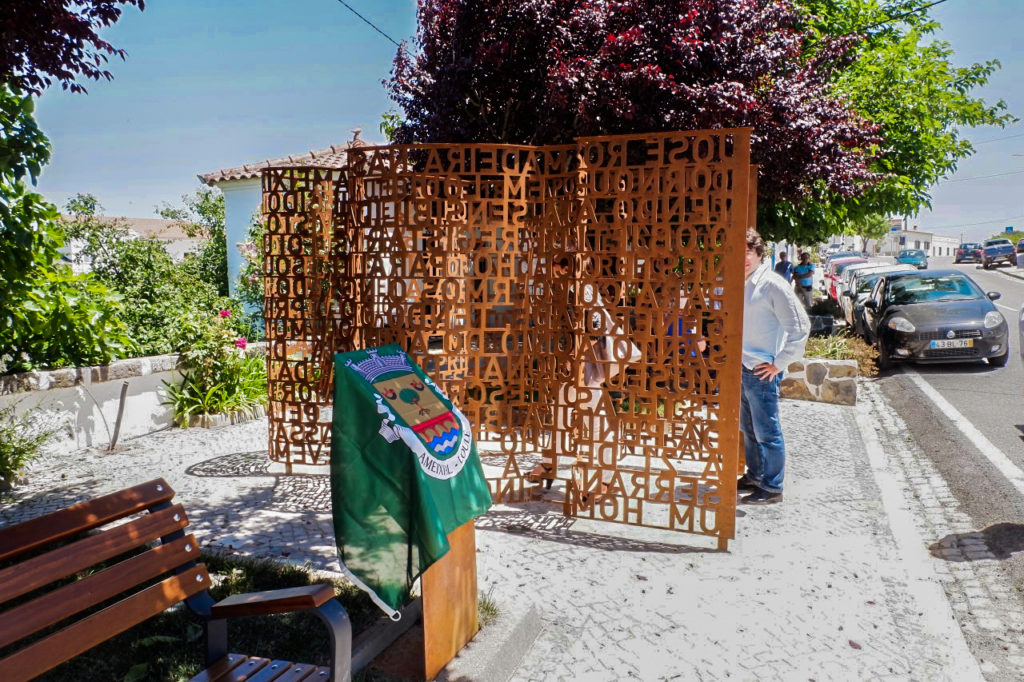
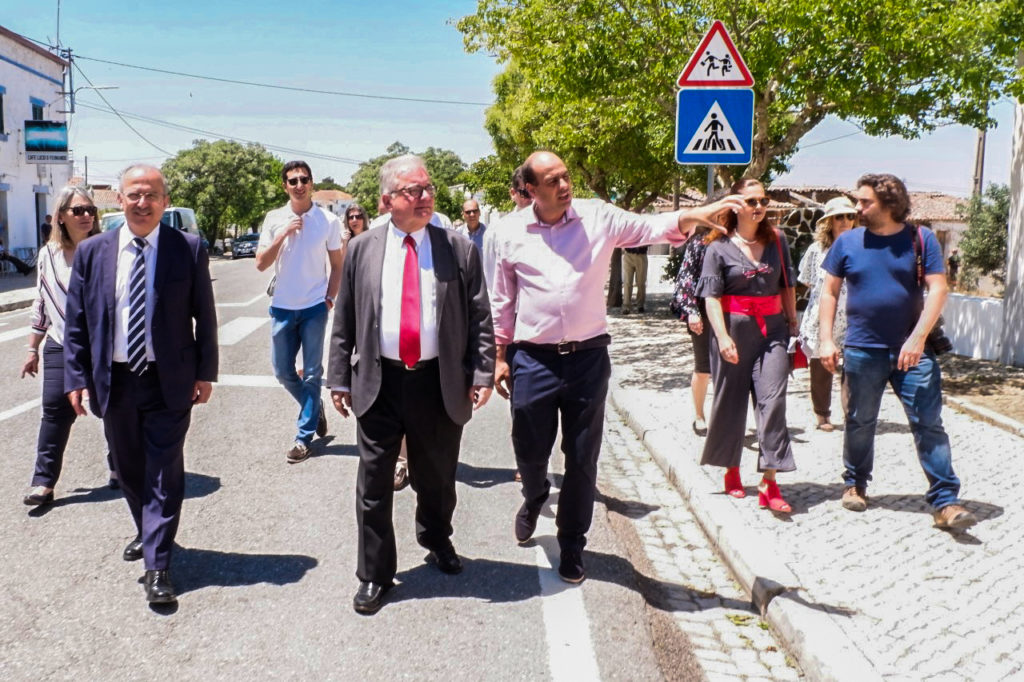
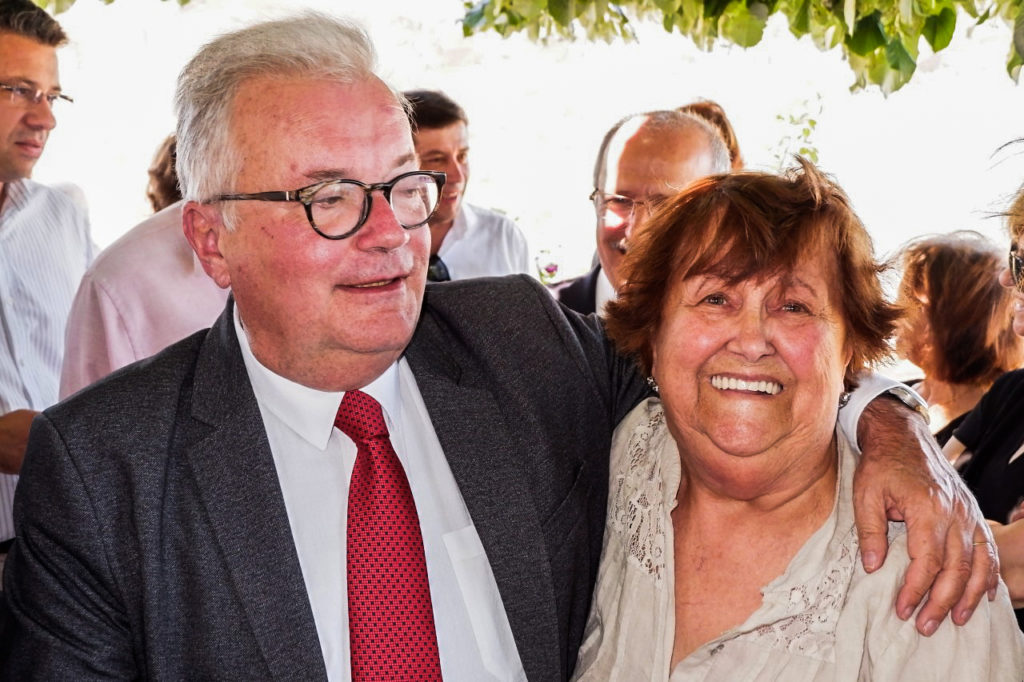
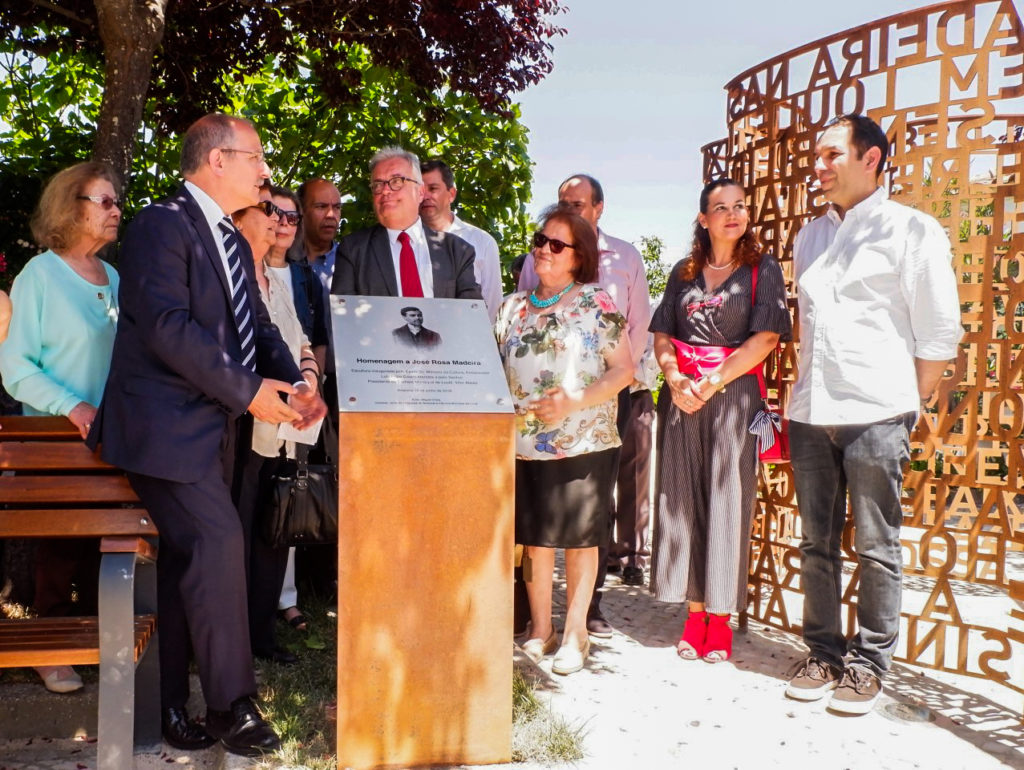


















Comments